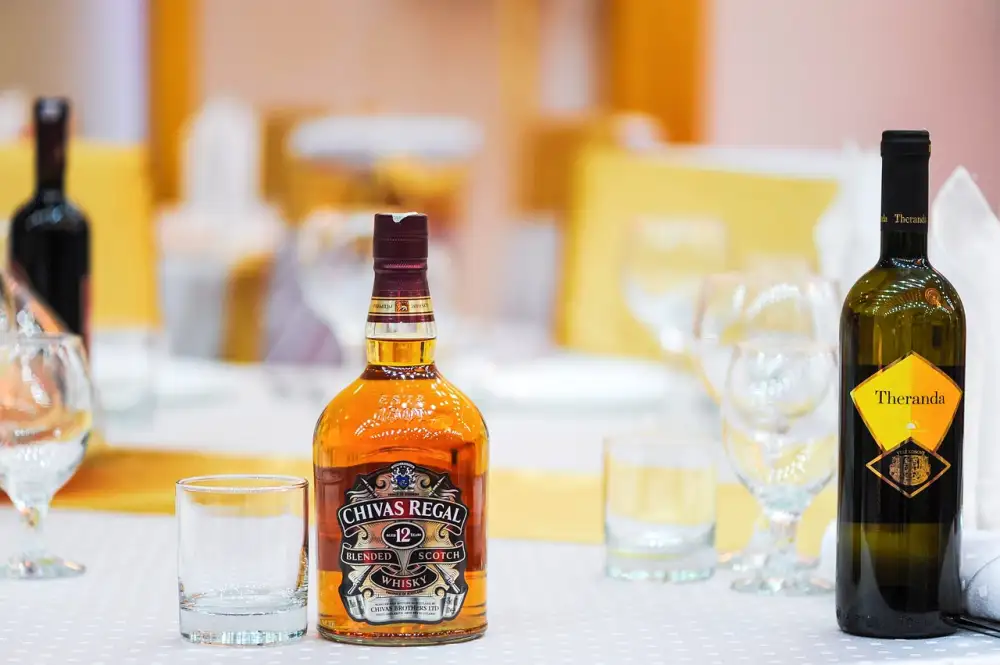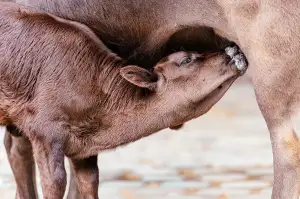Bourbon vs Whiskey: Unraveling the Distinctive Flavors and Styles

- Definition of Bourbon: Exploring the Characteristics and Origins
- Definition of Whiskey: Unveiling the Distinctive Features and Varieties
- Ingredients: Highlighting the Key Components in Bourbon and Whiskey Production
- Distillation Process: Comparing the Methods Used for Bourbon and Whiskey
- Aging: Examining the Significance of Maturation in Bourbon and Whiskey
- Flavor Profile: Differentiating the Taste Profiles of Bourbon and Whiskey
- Popular Cocktails: Exploring Classic Drinks Made with Bourbon and Whiskey
- Food Pairings: Suggesting Delicious Dishes to Complement Bourbon and Whiskey
Bourbon and whiskey are two popular spirits that often confuse people due to their similar characteristics. While both are distilled alcoholic beverages, there are distinct differences between the two. Bourbon is a type of whiskey, but not all whiskeys can be classified as bourbon. Understanding these differences is crucial for appreciating the unique flavors and styles each one offers. In this article, we will unravel the distinctive qualities of bourbon and whiskey, exploring their origins, ingredients, distillation processes, aging techniques, flavor profiles, and even suggesting food pairings and classic cocktails. So let's dive in and discover the fascinating world of bourbon and whiskey!
Definition of Bourbon: Exploring the Characteristics and Origins
Bourbon is a type of whiskey that has specific characteristics and origins. According to the U.S. Federal Standards of Identity, bourbon must be made in the United States and contain at least 51% corn in its mash bill. It is typically aged in new charred oak barrels, giving it a rich and distinct flavor profile. The name "bourbon" itself comes from Bourbon County, Kentucky, where it was first produced in the late 18th century. Today, bourbon is enjoyed worldwide for its smoothness, sweetness, and notes of caramel and vanilla.
Definition of Whiskey: Unveiling the Distinctive Features and Varieties
Whiskey, also spelled whisky in some regions, is a broad term that encompasses a range of distilled spirits. It is made from fermented grain mash and aged in wooden casks, typically oak barrels. The distinctive features of whiskey lie in its production process and the types of grains used. There are various types of whiskey, including Scotch whisky, Irish whiskey, American whiskey, and Canadian whisky. Each type has its own unique characteristics and production regulations that contribute to its distinct flavor profile. Whether you prefer the smoky notes of Scotch whisky or the smoothness of Irish whiskey, there is a variety of options to suit every palate.
Ingredients: Highlighting the Key Components in Bourbon and Whiskey Production
When it comes to the production of bourbon and whiskey, the ingredients play a crucial role in shaping their distinctive flavors. Both bourbon and whiskey are made from grains, but they differ in terms of the specific grains used. Bourbon must be made from a grain mixture that is at least 51% corn, while other grains such as barley, rye, and wheat can also be included. On the other hand, whiskey can be made from a variety of grains including corn, barley, rye, and wheat. The choice of grains contributes to the unique taste profile of each spirit. Additionally, the quality and source of water used in the production process also impact the final product. Whether it's limestone-filtered water for bourbon or pure spring water for whiskey, the choice of water adds another layer of complexity to these beloved spirits.
Distillation Process: Comparing the Methods Used for Bourbon and Whiskey
The distillation process plays a crucial role in shaping the flavors and characteristics of both bourbon and whiskey. While they share similarities, there are distinct differences in their production methods. Bourbon must be distilled from a fermented mash containing at least 51% corn and aged in new charred oak barrels. Whiskey, on the other hand, can be made from a variety of grains and aged in different types of barrels. The variations in ingredients and aging processes contribute to the unique taste profiles of bourbon and whiskey.
Aging: Examining the Significance of Maturation in Bourbon and Whiskey
Aging plays a crucial role in the development of flavors and complexities in both bourbon and whiskey. The maturation process allows the spirits to interact with the oak barrels, extracting desirable compounds such as tannins, vanillin, and caramelized sugars. Bourbon must be aged in new charred oak barrels, which imparts rich vanilla and caramel notes. Whiskey, on the other hand, can be aged in a variety of barrels, including used bourbon barrels, resulting in a wider range of flavors like smoky or fruity undertones. The length of aging also varies, with some bourbons requiring a minimum of two years while whiskeys can range from three to twenty years or more. Ultimately, aging is what gives these spirits their depth and complexity, making each sip an experience to savor.
Flavor Profile: Differentiating the Taste Profiles of Bourbon and Whiskey
When it comes to flavor, bourbon and whiskey offer distinctive taste profiles that set them apart. Bourbon tends to have a rich, sweet, and full-bodied flavor with notes of caramel, vanilla, and oak. It often carries a smooth and mellow character with a hint of spice. On the other hand, whiskey exhibits a wide range of flavors depending on its type. Scotch whiskey is known for its smoky and peaty taste, while Irish whiskey is smoother and lighter with hints of fruitiness. American whiskeys can vary from light and floral to robust and spicy. Exploring these diverse flavor profiles allows us to appreciate the unique characteristics each spirit brings to our palate.
Popular Cocktails: Exploring Classic Drinks Made with Bourbon and Whiskey
Bourbon and whiskey are not only enjoyed neat or on the rocks, but they also serve as the base for many classic cocktails. These drinks showcase the unique flavors and versatility of these spirits. One iconic bourbon cocktail is the Old Fashioned, a timeless blend of bourbon, sugar, bitters, and a twist of orange peel. Another beloved choice is the Mint Julep, made with bourbon, fresh mint leaves, sugar, and crushed ice – perfect for sipping on a hot summer day. Whiskey lovers often indulge in the Manhattan, which combines whiskey with sweet vermouth and bitters for a sophisticated sip. And let's not forget about the famous Whiskey Sour, a refreshing mix of whiskey, lemon juice, sugar syrup, and a dash of egg white for added texture. Whether you prefer your drink strong or fruity, there's a bourbon or whiskey cocktail to suit every taste preference.
Food Pairings: Suggesting Delicious Dishes to Complement Bourbon and Whiskey
When it comes to pairing food with bourbon and whiskey, the possibilities are endless. Both spirits have a rich and complex flavor profile that can enhance a wide range of dishes. For bourbon, try pairing it with grilled meats like steak or barbecue ribs. The smoky and caramel notes in bourbon complement the charred flavors of the meat perfectly. Additionally, bourbon's sweetness pairs well with desserts such as pecan pie or chocolate cake.
Whiskey, on the other hand, is incredibly versatile when it comes to food pairings. Its bold and robust flavors make it a great match for hearty dishes like roasted lamb or smoked salmon. The earthy undertones in whiskey also work well with dishes featuring mushrooms or truffles. For a unique combination, try pairing peaty scotch whiskey with oysters or smoked fish for a truly memorable culinary experience.
Ultimately, the key to successful food pairings with bourbon and whiskey is to experiment and find what works best for your palate. Whether you prefer savory or sweet flavors, there is a dish out there that will perfectly complement these beloved spirits. So go ahead, unleash your culinary creativity and discover the perfect pairing for your favorite bourbon or whiskey!
In conclusion, bourbon and whiskey offer a world of diversity and versatility to the discerning palate. Whether you prefer the rich, caramel notes of bourbon or the smoky, complex flavors of whiskey, there is something for everyone to enjoy. From classic cocktails like the Old Fashioned and Manhattan to delicious food pairings like grilled steak or dark chocolate desserts, these spirits can elevate any dining experience. So go ahead, explore the distinctive flavors and styles of bourbon and whiskey, and unleash your culinary creativity with these timeless libations. Cheers!
Published: 21. 12. 2023
Category: Food



